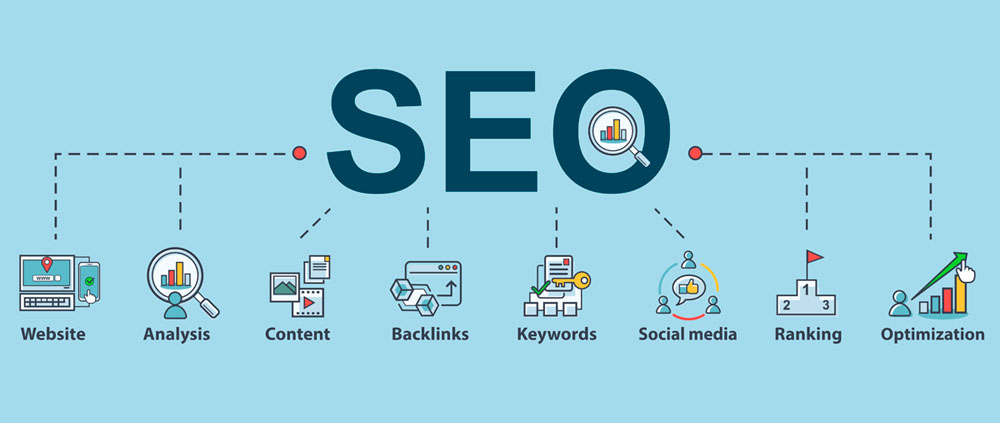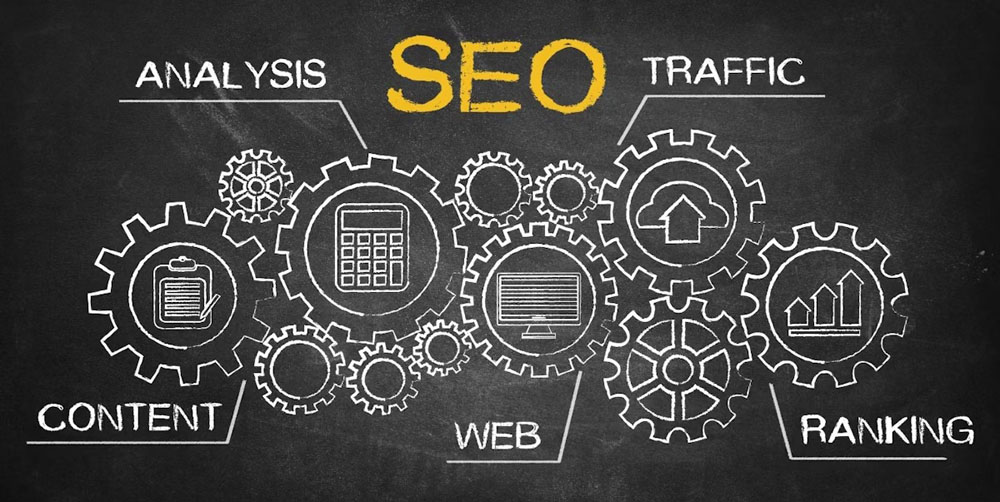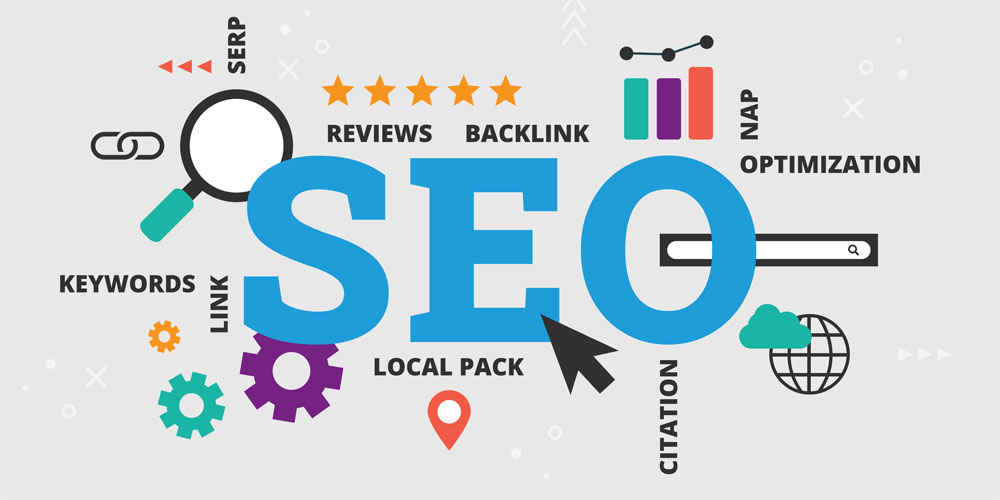
If you’re wondering what is SEO, search engine optimisation, imagine it as the process of tuning your website to the liking of search engines such as Google, which in turn helps people discover your content when they search online. This guide delivers straightforward insights into why SEO is so important in today’s digital world and how mastering it can drive traffic to your website and grow your business.
Table Of Contents
Key Takeaways
- SEO is a strategic practice focused on increasing a website’s visibility in search engines to foster greater brand recognition, drive organic traffic and potentially increase conversions by improving the site’s relevance to user queries and compliance with search engine algorithms.
- Effective SEO encompasses understanding and optimising for search engine algorithms by focusing on key factors like content quality, keyword usage and site structure, as well as employing on-page, off-page and technical SEO techniques to enhance SERP rankings.
- The evolution and future outlook of SEO indicate a growing influence of AI and voice search, the necessity for continuous content optimisation, and the importance of staying updated with trends like video SEO and understanding search intent to maintain and improve search rankings.
Decoding SEO: The Essence Of Search Engine Optimisation

SEO, an acronym that stands for Search Engine Optimisation (or Search Engine Optimization as it is spelt in the United States for example), is the fine art of enhancing a website to elevate its prominence in search engines such as Google, at its core, SEO is about visibility. By elevating a website’s position on search engine result pages (SERP’s) for pertinent keywords, SEO fosters greater brand recognition, enabling a wider audience to become acquainted with a business.
SEO holds immense significance for businesses. It amplifies website visibility, leading to an upsurge in traffic and potential conversions. SEO not only bolsters credibility and fortifies content marketing but also refines PPC campaigns, driving organic website traffic and conversions. Consequently, it minimises dependency on paid advertising and search engine marketing, positioning SEO as an economical strategy for enduring success.
To execute effective SEO, one must comprehend the functioning of search engines. They employ intricate algorithms to present the most pertinent results to user queries. These algorithms evaluate various factors such as site structure, content quality, and keyword usage to rank websites. Therefore, a website that aligns well with these factors will secure a higher rank on SERPs.
SEO’s allure resides in its potential to introduce your brand to those who need it most. Armed with an effective SEO strategy, your website transforms into a lighthouse, guiding prospective customers across the extensive digital landscape, right to your virtual doorstep.
Why Is SEO Important?

SEO has become a vital advertising method. Organic search accounts for 53% of website traffic. The global Search Engine Optimisation industry is projected to grow to around $121.1 billion in 2028 and will also grow in value.
Search engine optimisation is the key driving force of any organisation. The journey usually starts with looking for something, buying something or doing something. However, searches are fragmented today. The user could make search queries on search engines such as Google and Bing, social media sites, Youtube or online retailers such as Amazon.
Avoiding Common SEO Mistakes
Making mistakes is a common aspect of being human but in the world of SEO, there are some errors that can significantly impact website traffic and search engine rankings such as not using 301 redirects to point an old domain or page to the new domain or page passing link juice (SEO vaule) to the new page/domain. It’s important to be aware of these potential pitfalls and avoid them to prevent any loss in valuable traffic or decreases in traffic.
Duplicate Content
A frequently encountered error in SEO is duplicating content, which means having the same information appear on multiple websites. This can negatively impact search engine rankings.
Keyword Stuffing
Do you recall our conversation about keyword research? While incorporating keywords is vital, excessive use can result in keyword stuffing, a mistake that should be avoided.
Ignoring Mobile Optimisation
Mobile optimisation is essential in today’s world due to the significant growth of mobile users. Neglecting to optimise your site for mobile can result in a subpar user experience and potentially harm your search engine ranking.
Measuring SEO Success

Analysing the effectiveness of your SEO endeavors is crucial in determining which tactics are working and which ones aren’t, allowing you to make informed choices and improve your approach. This evaluation process helps identify what strategies yield results, ensuring data-driven decision-making for future campaigns targeted at improving website visibility on search engines.
Key Performance Indicators (KPIs)
SEO KPIs refer to quantifiable metrics that serve as indicators of the success and impact of your SEO strategies. These measurable values are essential in showcasing how effective your efforts have been for improving search engine rankings and optimising.
Google Analytics
With its ability to provide insightful information about website performance, Google Analytics is a formidable tool. It offers valuable insights into audience demographics and behavior enabling site owners to pinpoint areas for enhancement. By tracking user engagement with the site, this powerful platform aids in understanding your visitors better.
How Search Engines Function & Why It Matters For SEO

Search engines play the role of a digital cartographer, mapping out the internet’s vast terrain. They utilise web crawlers, automated bots that systematically navigate the internet, identifying and cataloging new web pages.
These crawlers locate new websites and page connections and they also rely on sitemaps to facilitate the monitoring and indexing of submitted pages. Among these, other search engines may have different approaches, but the core concept remains the same.
A complex algorithm forms the crux of all search engines. This algorithm essentially comprises a set of rules followed by the search engine to rank websites. It considers numerous factors, including keywords, site structure and content quality, aiming to deliver the most relevant and high-quality search results to users. To ensure effective SEO, it’s vital to understand these search engine algorithms and up-to-date with same.
Effective SEO strategies are designed to enhance a website’s SERP rankings, leading to higher traffic and potentially increased sales. That’s why search engines play a crucial role in SEO. They determine the rankings of websites on SERPs based on how well the website aligns with their ranking factors.
In essence, search engines are the gatekeepers of online visibility. By understanding how search engines work and what they value, businesses can tailor their websites to meet these criteria, enhancing their visibility, attracting more traffic and ultimately, driving more sales.
The Pillars Of SEO
Similar to a robust building, SEO is underpinned by three fundamental pillars: on-page, off-page, and technical factors. Each pillar holds a significant role in the comprehensive SEO strategy, contributing to the website’s visibility, credibility and user experience.
On-Page SEO
On-page SEO pertains to the elements present within a web page itself. Its main objective is to enhance the content of web pages and each individual webpage on your website, in order for it to rank higher in search engine results pages (SERPS) and drive organic traffic.
Off-Page SEO
While on-page SEO primarily focuses on optimising the content and elements within a website, off-page SEO deals with external ranking factors, that can influence its ranking. This includes building backlinks and gaining visibility through various mediums such as news publications and social media networks in order to establish credibility for your site.
Technical SEO
Lastly, technical SEO is an essential aspect to consider for your website. It concentrates on the technical elements of a site such as its loading speed, adaptability for mobile devices and security measures. These factors are crucial in providing smooth access to your website while avoiding any hindrances that could negatively impact search engine rankings and overall performance.
Now, let’s dissect these pillars further to understand their impact on the SEO landscape.
Essential SEO Components

After examining the various forms of SEO, it is important to delve into the essential elements of a prosperous SEO plan. These crucial components encompass conducting thorough keyword research, generating high-quality content and implementing effective link building strategies.
Keyword Research
Conducting thorough keyword research is essential for successful SEO. This crucial process involves identifying the specific words and phrases that your target audience uses when searching on platforms such as search engines. By understanding these keywords, you can tailor your content to match what your audience is looking for.
Having a grasp of relevant keywords allows you to develop valuable and engaging content that meets the needs of your readers. It ensures that they can easily find and connect with your website through their searches on various search engines.
Content Creation
Keyword research and content creation are closely connected. After determining your target keywords, it is essential to develop top-notch and captivating material that offers relevant information to your readers while addressing their specific needs and interests.
Link Building
The process of link building is crucial for SEO and can greatly impact a website’s ranking. Gaining backlinks from trusted sources as well as using internal linking techniques can help establish the authority of your site. These methods contribute to improving overall search engine performance.
Crafting Content with Keyword Research
At the heart of on-page SEO lies content, the lifeblood of any website. Content is where you engage your audience, convey your brand message and ultimately, convert visitors into customers. And the key to crafting compelling, SEO-friendly content? Keyword research.
Keyword research in the realm of SEO involves:
- Exploring and evaluating the keywords used by your intended audience when seeking information through search engines
- Helping search engines discover and index relevant content for users
- Ensuring that your website appears in relevant search results
There are numerous tools for conducting keyword research, including Semrush, Moz Keyword Explorer, and Google Keyword Planner. These tools can also help in analysing internal links and their impact on SEO. By utilising these tools, businesses can gain insights into the keywords their audience uses, enabling them to tailor their content to match these search queries.
Yet, it’s not only about identifying the right keywords but also about using them effectively. Here are some tips for using relevant keywords effectively:
- Place them strategically in subheadings
- Incorporate them within the initial sentences or first paragraph
- This enhances SEO and provides clear, immediate context to readers about the content’s relevance to their queries
Building A Robust Internal Link Structure
While content is the lifeblood of a website, internal links are its arteries, forming a network that connects different pages and guides both search engine bots and users. An effective internal link structure is a crucial component of on-page SEO, significantly impacting how search engines understand and rank your website.
Internal link structure holds importance in SEO for its capacity to aid search engines in understanding your website’s organisation and hierarchy. It assists in allocating authority and ranking influence across various pages while establishing the authority and significance of key pages.
Essentially, an aptly structured internal link network can considerably enhance indexation, distribute link equity and improve the user experience.
Building a robust internal link structure involves:
- Generating substantial amounts of content
- Establishing links from high authority pages to newer or less authoritative ones
- Using descriptive anchor text
- Identifying internal linking opportunities from pages that rank for related topics
- Linking to pages close to ranking
- Streamlining page depth through intelligent internal navigation
Internal linking also significantly impacts website crawlability and indexing. By providing a clear path for search engine bots to navigate from one page to another, it facilitates the discovery and indexing of new content, leading to an overall improvement in the website’s SEO performance.
Enhancing Site Security & Performance
The third pillar of SEO is technical SEO, which focuses on the backend of a website. It involves aspects that may not be visible to users but significantly influence the website’s performance and security. Elements like site speed, mobile-friendliness, and site security form an integral part of technical SEO.
Within the context of SEO, site security directly influences rankings. A secure website not only engenders trust among visitors but also communicates to search engines that your site is reliable and safe for users. This can result in superior search engine rankings and amplified visibility.
Improving website security in relation to SEO involves:
- Using effective scanning tools
- Regular updating and patching of the website
- Prioritising strong passwords and secure hosting
- Implementing SSL certificates
These measures ensure that your website meets the security standards set by search engines, thereby improving your SEO performance.
Site speed, too plays a crucial role in SEO. It’s a confirmed ranking factor due to its impact on user experience. Google assesses page speed through Core Web Vitals metrics and incorporates it into search rankings. So, a website that loads quickly and smoothly provides a better user experience, which can translate into higher search engine rankings.
The Role Of Content Marketing In SEO

While SEO centers on optimising your website for search engines, content marketing needs to focus on creating and disseminating valuable content to captivate and engage your target audience. These two concepts are closely intertwined, with content marketing taking on a central role in driving organic traffic and enhancing SEO.
SEO and content marketing are like two sides of the same coin. SEO drives specific traffic to your website, including your content. On the other hand, content marketing emphasises the use of valuable and relevant content to encourage profitable customer or client action. The two work hand in hand, with SEO bringing in the right audience and content marketing engaging them and driving conversions.
Quality content is key to SEO success. Search engines prioritise websites that regularly publish high-quality content relevant to their audience. This not only enhances your SEO performance but also positions your brand as a trusted authority in your field. Moreover, well-crafted content can earn backlinks from other websites, further boosting your SEO.
In essence, content marketing is an invaluable tool in your SEO toolkit. By creating and sharing valuable content, you can attract the right audience, build credibility and ultimately, drive conversions.
Local SEO: Optimising For Local Business Listings

While SEO typically emphasises amplifying your website’s visibility on a global scale, local SEO concentrates on enhancing your visibility within your local community. It revolves around optimising your website to draw in local customers, making it indispensable for businesses with a physical location or those catering to a specific geographical area.
Local SEO refers to a digital marketing approach that enables businesses to:
- Enhance their website’s performance in local search results
- Connect with their local customer base
- Enhance online visibility
- Facilitate easier discovery by potential customers seeking relevant products or services in the local area
Businesses can enhance their local search visibility by optimising their Google Business Profile and Bing Places profiles. This involves:
- Ensuring that the profile is complete with information
- Adding posts, photos and reviews
- Maintaining an appealing business description
- Keeping opening and closing hours up to date
- Selecting relevant categories
- Actively participating in social media
Local keyword research is also crucial in local SEO. By identifying the phrases commonly used by individuals seeking local products and services, businesses can tailor their website and online presence to these keywords. This enhances their visibility in local search results, attracts more leads and sales, and simplifies the process for searchers to locate them when in need of local products or services.
The power of positive online customer reviews in enhancing local SEO cannot be overstated. They foster trust among potential customers, enhance online reputation and indicate to search engines the importance of the business.
Understanding SEO Ranking Factors

Ranking high on search engine results pages (SERPS) is the ultimate goal of SEO. But, what are the factors that influence these rankings? Understanding these factors can provide valuable insights into how to optimise your website for better rankings.
Key factors influencing SEO rankings include quality content, backlinks and technical SEO. These elements play a pivotal role in how search engines rank websites. High-quality content relevant to user queries, a robust backlink profile from credible websites, and a website that aligns with the technical standards of search engines collectively contribute to superior rankings.
Backlinks, in particular, have a significant impact on SEO rankings. They serve as an endorsement for search engines, signifying the value, credibility, and usefulness of the content. In other words, when other reputable websites link to your content, it signals to search engines that your website is a valuable resource, enhancing your credibility in their ranking assessments.
Site speed and mobile-friendliness also play a crucial role in SEO rankings. As more and more users access the internet via their mobile devices, having a mobile-friendly website is no longer optional. It’s a necessity. Similarly, a website that loads quickly provides a better user experience, which can translate into higher search engine rankings.
Link Building: Earning External Links From Other Websites
Link building is another crucial aspect of SEO. It involves earning external links from other websites, which can significantly boost your website’s visibility and credibility.
Link building in SEO is a strategy for obtaining external links from other websites. These links serve as a significant ranking factor for search engines, impacting your website’s authority and relevance. The more high-quality backlinks your website has, the higher its authority in the eyes of search engines, leading to improved rankings.
Effective link building strategies for SEO encompass:
- Targeted outreach
- Finding and fixing broken links
- Ensuring content is linked where mentioned
- Replicating competitor backlinks
- Content marketing
- Leveraging useful tools or infographics
- Guest blogging
- Email outreach
- Engaging in public relations to strengthen the link profile
Acquiring high-quality external links from reputable websites requires a focus on building credibility and professionalism. Esteemed sites typically link to content that meets their standards. This signals to search engines that your website is a valuable resource, enhancing your credibility in their ranking assessments.
The Power Of Meta Tags & Descriptions
Meta tags and descriptions may seem like small details in the grand scheme of SEO, but they pack a powerful punch. These HTML elements provide a concise summary of your webpage’s content, influencing both how search engines understand your content and how users interact with it.
Meta tags and descriptions are essential HTML elements that provide a summary or description of a webpage. They appear prominently in search engine results pages and play a crucial role in helping users comprehend the nature of the page’s content.
Meta tags and descriptions play a crucial role in SEO by enhancing the click-through rate of organic search results. They convey valuable information about the page content to both search engines and website visitors, influencing how users interact with your content and how search engines rank your website.
Meta tags and descriptions provide relevant information about a webpage’s content to search engines. While they may not directly affect search rankings, they contribute to aiding search engines in understanding the page’s subject matter and indexing approach. Meta descriptions have the potential to impact how search engines present and rank the page in search results.
SEO Tools & Analytics: Tracking Organic Traffic & Performance

With a multitude of factors influencing SEO, tracking your SEO performance can feel like navigating a labyrinth. Fortunately, a range of SEO tools and analytics platforms are available to simplify this task, offering valuable insights into your website’s organic traffic and performance.
Primary SEO tools for monitoring organic traffic include:
- SEMrush
- Ahrefs
- Moz
- Google Search Console
- Google Analytics
These tools offer a wealth of data about your website, from the keywords driving traffic to your site to the number of visitors and their behavior on your site.
SEO tools can be utilised to enhance organic traffic through:
- Website and content optimisation
- Keyword research
- Backlink analysis
- Competitor performance monitoring
These tools offer valuable insights and data for making informed decisions and tracking progress in improving organic rankings and attracting more traffic.
Google Analytics, in particular, aids in monitoring SEO performance by:
- Tracking website performance
- Gathering visitor data
- Evaluating marketing endeavors
- Enabling automatic tracking of organic traffic
- Establishing alerts for issues
- Monitoring website performance changes
This makes Google Analytics an invaluable tool for any business looking to improve its SEO performance.
Paid vs Organic Search Results: Understanding The Difference
In the realm of search engine results, not all listings are created equal. Some are organic, earned through SEO, while others are paid for by businesses. Understanding the difference between these two can offer valuable insights into how to maximise your visibility on search engines.
Paid search results refer to the listings at the top of a search engine results page (SERP) that are labeled as ads and have been paid for by companies to attract traffic to their websites. On the other hand, organic search results are the unpaid entries on SERPs, achieved through organic search engine optimisation techniques without direct payment for their placement.
Paid search results are commonly positioned at the top or bottom of SERPs and are distinctly identified as ‘Ad’ or ‘Sponsored’ to signify their nature as advertisements. Conversely, organic search results are unmarked and appear based on their relevance to the user’s query, without any influence from payment for ranking.
The main difference lies in that paid search results necessitate payment for a conspicuous placement in search engine results, ensuring instant visibility. In contrast, organic search hinges on earning a spot through relevance and high-quality content without any direct payment.
While paid search can yield swift results and enhanced visibility, organic search typically produces a higher return on investment as opposed to a cost and fortifies enduring credibility.
Social Media & SEO: Leveraging Social Media Marketing
In the contemporary digital landscape, social media has emerged as an indispensable part of our lives. Beyond its function in connecting individuals, social media also assumes a crucial role in SEO, providing businesses with a platform to reach out to and engage with their target audience.
SEO and social media marketing are closely connected. While SEO focuses on attracting specific traffic to your website, social media marketing leverages social platforms to engage and connect with your audience. By integrating SEO into your social media marketing, you can enhance your reach and engagement, driving more traffic to your website and improving your SEO performance.
The most effective social media platforms for SEO include:
- YouTube
- TikTok
YouTube is particularly effective as its videos can achieve high rankings in Google search results.
While social media links do not have a direct impact on SEO, as they are often ‘nofollow’ and do not hold the same significance as traditional backlinks in the eyes of search engines, having a strong social media presence can still benefit your SEO.
A strong social media presence can increase your brand visibility, drive traffic to your website and enhance your online reputation, all of which can indirectly improve your SEO performance.
SEO In Practice: Real-World Examples & Case Studies
SEO is more than a theoretical concept. It bears practical implications and real-world applications. By scrutinising real-world examples and case studies, we can glean insightful knowledge about effective strategies, the obstacles that surface, and the outcomes that can be realised.
Real-world examples and case studies play a crucial role in understanding SEO success as they offer actionable insights into effective strategies and their outcomes. By analysing specific SEO initiatives and their results, one can gain valuable knowledge about the most effective tactics for improving search engine visibility and organic traffic.
Some of the effective strategies for implementing SEO in real-world scenarios include:
- Underestimating the competition
- Updating old articles
- Creating new keyword-focused content
- Integrating long-tail keywords
- Optimising white space
- Using compelling title tags and meta descriptions
- Building reputable backlinks
Companies like Canva, Airtable, Wordstream and Belden Brick have all successfully implemented SEO strategies, showcasing the practical application of SEO strategies and illustrating their potential for business success. These real-world examples serve as guiding lights for businesses looking to enhance their SEO performance.
SEO Trends & Future Outlook

Like any facet of the digital landscape, SEO is perpetually evolving. Staying abreast of current trends and envisioning the future can provide invaluable insights into how to adapt and flourish in the ever-fluctuating world of SEO. Check out the on-going study carried by Originality.ai on the amount of AI content in Google search results.
Artificial Intelligence (AI) has had a substantial impact on SEO, notably through the use of machine learning algorithms such as Google’s RankBrain, which improves search result accuracy. AI assesses user actions, recommends tailored content, and offers important guidance for SEO enhancement. Additionally, machine learning plays a crucial role in:
- Emulating human behavior
- Improving search algorithms
- Content generation
- Delivering an improved user experience
All of these elements are essential for the future of SEO.
The upcoming Google algorithm updates including speculative changes like the November 2023 Core Algorithm Update, have the potential to significantly alter the SEO environment. These updates may result in the elevation or reduction of webpage rankings based on content relevance and quality, necessitating adjustments in SEO tactics to uphold or enhance ranking positions.
The primary trends in SEO encompass:
- Increasing significance of Artificial Intelligence
- Optimisation for voice search
- Integration of video SEO
- Comprehension of search intent for content development
Maintaining content currency, relevance, and alignment with the target audience continues to be crucial for enhancing search rankings.
Summary
SEO is a dynamic and multifaceted discipline, encompassing a range of strategies and tactics aimed at enhancing a website’s visibility in search engine rankings. From understanding the basics of SEO and how search engines work to the three pillars of SEO, the role of content marketing, local SEO, the importance of link building, and the power of meta tags and descriptions, we have taken a deep dive into the world of SEO.
Looking forward, the impact of AI, the evolution of Google’s algorithms and the emerging trends in SEO signal a dynamic and exciting future for SEO. Armed with the knowledge of SEO and its various facets, businesses can harness the power of SEO to enhance their online visibility, attract more customers, and ultimately drive business growth.
Frequently Asked Questions
What do you mean by search engine optimization SEO?
SEO, or search engine optimization (as it’s mainly known), refers to the process of enhancing your website to boost its visibility in search engines like Google and Bing when people search for products or services you offer. It involves improving your website’s technical setup, content relevance, and link popularity to rank better in search results.
How do I use SEO on my website?
To use SEO on your website, make sure to conduct keyword research, use relevant terms, place keywords throughout your page, write high-quality content, optimise your images, ensure your website has a fast page speed, and optimise for mobile.
Also, create titles and descriptions for each page, utilise anchor text, add alt text to images, organise your site with the right headers, and prioritise proactive indexing. This comprehensive approach will help improve your website’s search engine ranking and visibility.
What is an example of SEO?
An example of SEO is claiming and optimising your Google Business Profile, which improves visibility in local searches and complements your website and social media presence.
How do SEO and content marketing relate?
SEO and content marketing are closely connected as SEO drives specific traffic to your website, including your content, while content marketing emphasises valuable and relevant content to encourage profitable customer or client action. Both work together to enhance online visibility and drive organic traffic.
What is the difference between SEO, SEM, and PPC?
The key distinction between SEO, SEM, and PPC lies in their approaches to enhancing search visibility. While SEO focuses on increasing organic search rankings, SEM encompasses both organic and paid search advertising strategies. On the other hand, PPC involves paid search results by paying for ad placements within relevant search results.
How can I measure the success of my SEO efforts?
The effectiveness of your SEO strategies can be assessed using key performance indicators (KPIs), as well as through the use of Google Analytics and other SEO tools. These resources offer valuable insights for measuring overall performance.
What are the future trends in SEO?
In the future, SEO will be shaped by Artificial Intelligence, voice search optimisation, video SEO integration, and understanding search intent for content development. Embracing these trends will be crucial for staying competitive in the ever-evolving digital landscape.



